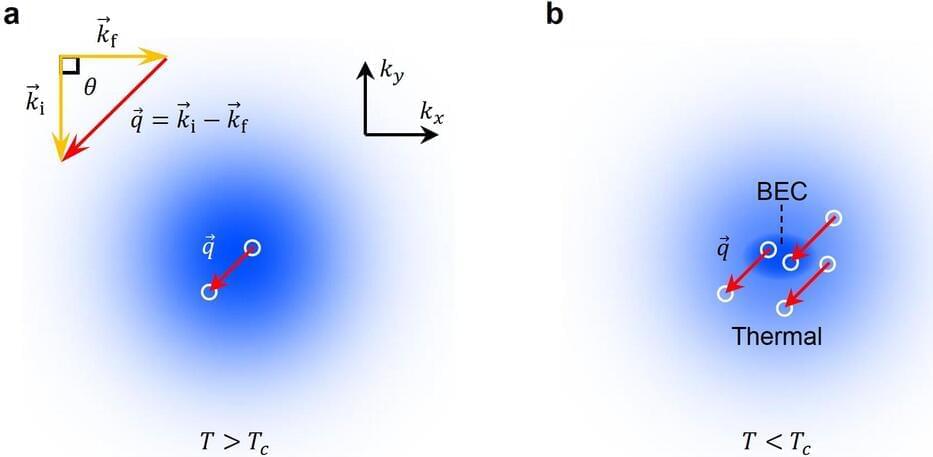Bosons, one of the two fundamental classes of particles, have been the focus of countless physics studies. When bosonic particles are transitioning into an already occupied final quantum state, the rate of this transition is enhanced by its so-called “occupation number,” an effect known as bosonic stimulation. The appearance of bosonic stimulation in light scattering processes was first predicted over three decades ago, yet directly observing it in experimental settings has so far proved challenging.
Researchers at the MIT-Harvard Center for Ultracold Atoms have recently observed bosonic enhanced light scattering in an ultracold gas for the first time. Their findings, published in Nature Physics, could open new exciting possibilities for the study of bosonic systems.
“For bosons, the transition rate into an already occupied quantum state is enhanced by its occupation number: the effect of bosonic stimulation,” Yu-Kun Lu, one of the researchers who carried out the study, told Phys.org.
